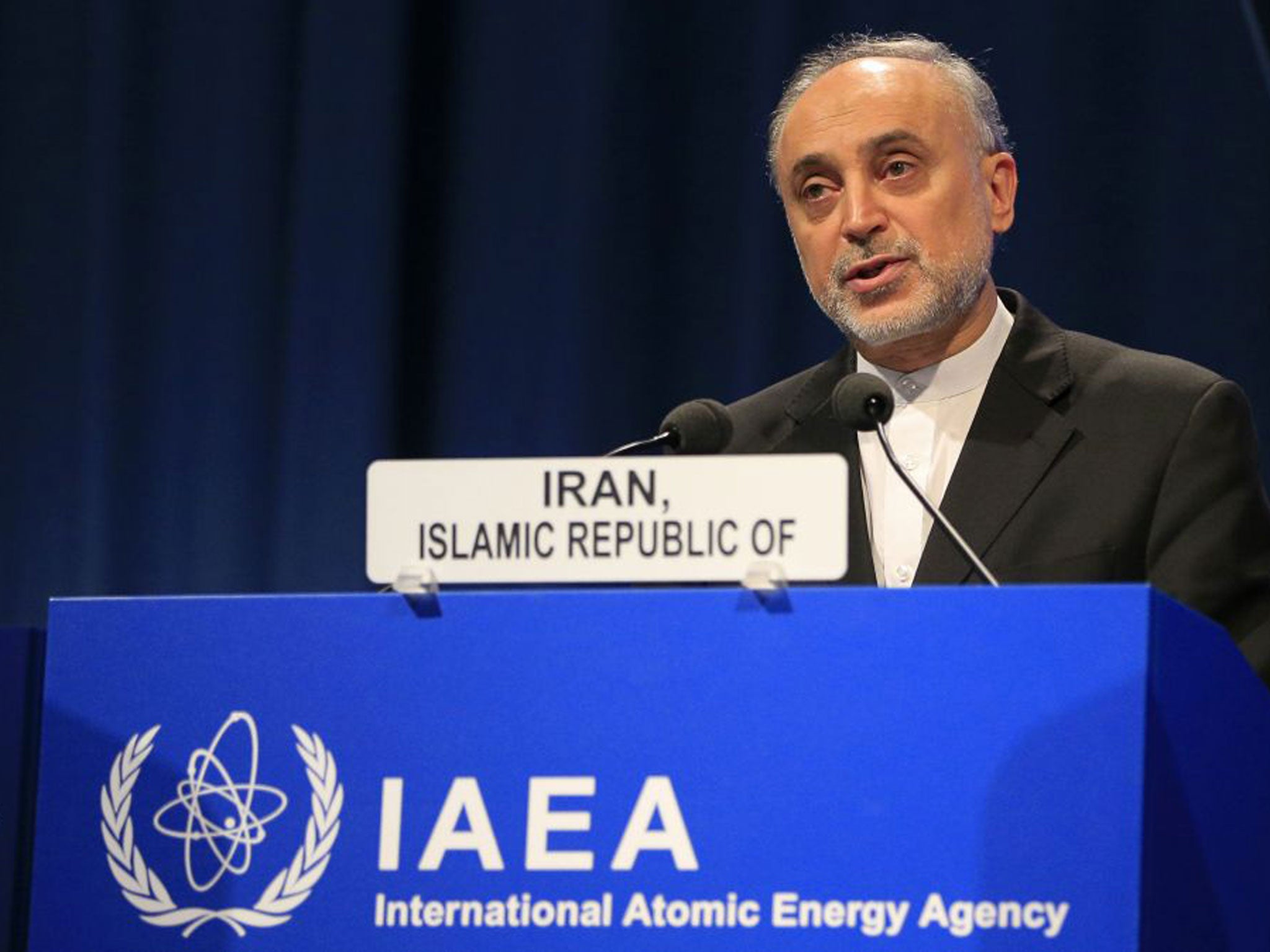Iran arrests four on suspicion of nuclear sabotage

Your support helps us to tell the story
From reproductive rights to climate change to Big Tech, The Independent is on the ground when the story is developing. Whether it's investigating the financials of Elon Musk's pro-Trump PAC or producing our latest documentary, 'The A Word', which shines a light on the American women fighting for reproductive rights, we know how important it is to parse out the facts from the messaging.
At such a critical moment in US history, we need reporters on the ground. Your donation allows us to keep sending journalists to speak to both sides of the story.
The Independent is trusted by Americans across the entire political spectrum. And unlike many other quality news outlets, we choose not to lock Americans out of our reporting and analysis with paywalls. We believe quality journalism should be available to everyone, paid for by those who can afford it.
Your support makes all the difference.Iran's nuclear chief said on Sunday that authorities arrested four workers in an alleged sabotage plot involving one of the country's nuclear facilities, hinting that authorities were looking at suspected international links such as Israel.
The reports quoting Ali Akbar Salehi did not give further details or name any specific countries in possible connection to the investigation. But his reference to probes into "hostile" nations suggested Iran could point the finger at Israel — which is already blamed by Iran for a series of targeted slayings of nuclear scientists over the past four years.
Iran also has claimed possible US links to past attacks on its nuclear program, but Salehi said the latest alleged plot could be tied to those opposing Tehran's recent groundbreaking outreach to Washington. On Saturday, Iran's foreign minister, Mohammad Javad Zarif, said Israeli Prime Minister Benjamin Netanyahu wanted to "blackmail the world" and block potential progress in nuclear talks with the US and other world powers.
Salehi, who was quoted by the semiofficial Fars news agency, gave no further details on the alleged plot or the possible target, but said authorities had monitored the suspects and made the arrests at "exactly the right time." Later, Salehi told state TV that authorities had foiled "several cases" of similar sabotage attempts in the past "two or three weeks." He also did not elaborate.
"Hostile countries are not interested in finding way out of current situation and they are trying to block agreement on the nuclear case though acts of sabotage," Fars quoted Salehi as saying.
In Iranian official terminology, hostile countries are usually a reference to Israel and the United States. But the attempts at historic diplomacy suggested with Washington suggested the term was aimed at Israel.
Talks over Iran's nuclear program are scheduled to resume next week in Geneva amid hopes of new proposals on all sides after the exchanges between Iran and the US during the recent UN General Assembly gathering, which included a phone conversation between President Barack Obama and Iran's new president, Hassan Rouhani. It was the highest-level dialogue between the countries since the 1979 Islamic Revolution.
Iran is urging the US to ease sanctions in exchange for nuclear concession. But Iran has not publicly specified what measures it could take to satisfy Western concerns that its nuclear work could one day produce atomic weapons. Iran insists it only seeks reactors for energy and medical use such as cancer treatment.
Salehi also noted that Iran has upgraded its protective measures against cyberattacks that have "continued" over the past years.
In 2010, the powerful Stuxnet virus targeted Iran's nuclear facilities and other industrial sites, and Tehran has acknowledged the malicious software affected a limited number of centrifuges — a key component in nuclear fuel production. But Iran has said its scientists discovered and neutralized the malware before it could cause serious damage.
Iran periodically announces the arrest of suspects charged with espionage or attempts to sabotage its nuclear facilities. But it normally does not release further details on their identities or fate.
In August, Iran said it arrested a man on charges of spying for Israel. The suspect allegedly passed intelligence to a security officer at the Israeli embassy in Thailand. Last week, Israel announced the arrest of an Iranian-Belgian citizen on suspicion of spying for Iran.
AP
Join our commenting forum
Join thought-provoking conversations, follow other Independent readers and see their replies
Comments